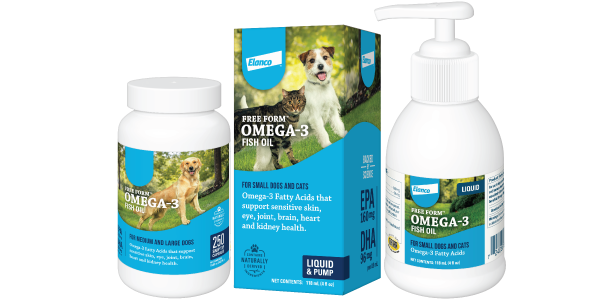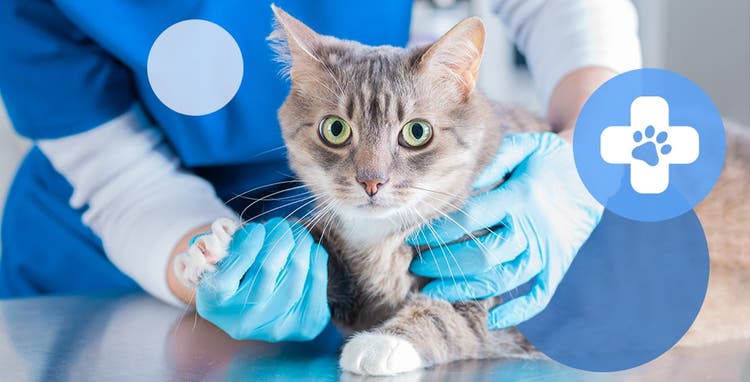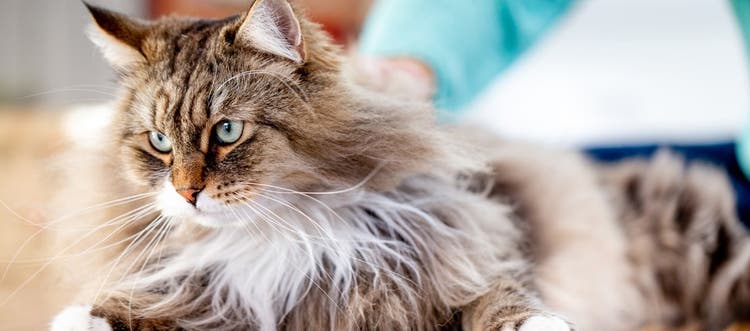Managing your pet's health with preventive care — including regular vet visits, exercise, and supplements — can help improve their quality of life.
By Donna M. Raditic, DVM, DACVN
When your veterinarian treats your pet for a sudden or acute disease, injury, or new symptoms, we refer to it as "reactive" veterinary care. Just as important is another type of veterinary care for your pet: what we call "proactive," "preventive" or "wellness" veterinary care. Rather than waiting until your pet exhibits signs of a problem, you take your pet for proactive veterinary medicine to help manage their health.
Regular veterinary visits, including a thorough physical examination, blood and urine tests, vaccinations, parasite preventives, dental care, and expert guidance on proper exercise and supplements, can help ensure that your pet is as healthy as possible, inside and out. Proactive visits can also provide early detection of diseases that may require modifying your pet's lifestyle.
The following are suggestions for preventive veterinary care that most dogs and cats can benefit from.
Proactive Care for Ideal Body Weight
Ask your veterinarian what your dog or cat's optimal weight and body condition score (BCS) should be. One study in dogs demonstrated that maintaining ideal weight and BCS improved quality of life.1 You and your veterinary team can proactively manage your pet with careful attention to exercise.
Proactive Care for Joint and Mobility Health
Dogs can benefit from veterinary preventive care for normal joint and connective tissue development and function. Proactively regulating growth rate and weight is especially important in large dog breeds for this reason. Also discuss with your veterinarian supplements to maintain normal connective tissue, joints, and mobility.
As cats age, they may need extra attention to help support joint flexibility and mobility. Your veterinarian can discuss potential modifications you can make, such as changes to your cat's lifestyle or weight management, as well as the addition of supplements, during a proactive senior wellness visit.
Proactive Care for Skin and Coat Health
Veterinary recommendations may include supplements with omega-3 fatty acids to promote healthy skin and coat in dogs and cats. Purebred cats and older, overweight cats in particular may also need proactive management, such as regular grooming and supplements, to support healthy skin and coat.
Proactive Care for Gastrointestinal Health
Supplements such as prebiotics and probiotics support digestion and absorption to promote overall gut health. Prebiotics, or what we know as fiber, may help support bacteria in the gut, while probiotics provide a source of beneficial bacteria to maintain and support gastrointestinal health and function.
The proactive veterinarian may recommend probiotics used daily or for sudden times of stress to help maintain a healthy microbial balance and support proper digestion and bowel health.
Proactive Care for Your Pet's Lifetime
These are just a few ways you can care for your pet. Talk to your veterinarian about dental care, vaccinations, and parasite preventives that are tailored to your individual pet and his or her lifestyle. You can also ask your veterinarian what else you can do now to help ensure your pet's health and well-being over his or her lifetime.
NOTE: We know that the genetics of certain dog and cat breeds makes them more susceptible to specific medical conditions. Talk with your veterinarian about whether your pet may be at risk for any breed-related medical conditions.
About the Expert:
Dr. Donna M. Raditic completed her Doctorate of Veterinary Medicine at Cornell’s College of Veterinary Medicine. She was a Professor for the Nutrition and the Integrative Medicine Services at the University of Tennessee College of Veterinary Medicine and now publishes and lectures nationally and internationally on nutrition, supplements and integrative veterinary medicine. A veterinary nutritionist, integrative practitioner, to academic professor, she offers unique perspectives on the role of nutrition and integrative care for companion animals.
- 1 Kealy RD, Lawler DF, Ballam JM, et al. (2002). JAVMA. 220(9):1315-1320.

Endurosyn® Digestive Health Probiotic Oral Gel for Cats
A three-day probiotic oral gel to promote intestinal well-being during sudden times of stress in cats.

Endurosyn® Digestive Health Probiotic Oral Gel for Dogs
A three-day probiotic oral gel to promote intestinal well-being during sudden times of stress in dogs.

Free Form™ Omega-3 Fish Oil for Dogs & Cats
A supplement for dogs and cats that supports the health of your pet’s skin and coat, joints and immune system with highly concentrated, omega-3 fatty acids. And it comes in two convenient forms so you can choose the one that’s right for your pet, no prescription required.




